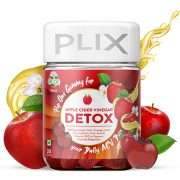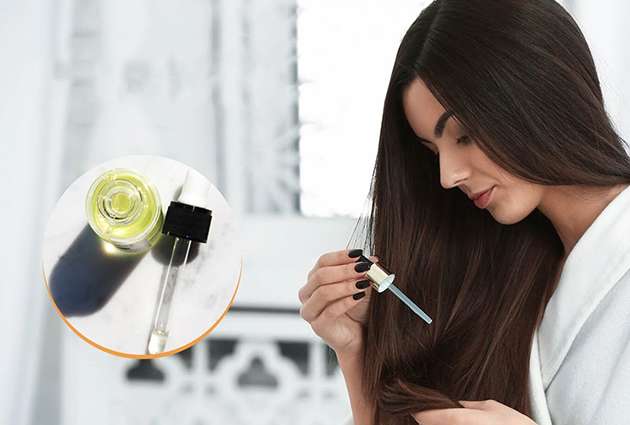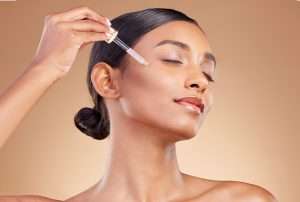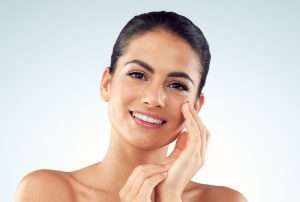How To Choose A Good Acne Remedy That Will Actually Help You Get Rid Of Acne
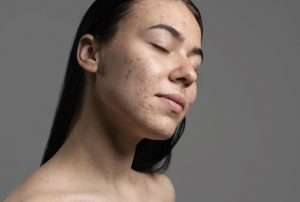
Clean and clear, acne-free skin results from consuming a healthy diet and adopting the right kind of products that help your skin heal. It is important to choose a good acne serum or acne remedy that suits your skin! Several home remedies can help in treating acne marks and prevent the risk of future acne breakouts. In this article, we will have a look at these natural remedies and also talk about the best acne-cleansing serum that can help you achieve acne-free skin.
What Is Acne?
Acne is a common skin condition caused by dead skin cells, oil, dirt, and bacteria clogging pores. Acne develops when your skin’s pores become clogged with oil and dead skin cells.
Each pore is linked to a sebaceous gland, which produces sebum, an oily material. Extra sebum can clog pores, promoting the growth of acne-causing bacteria. Acne leaves stubborn acne marks and lesions that may take a long time to heal. Let us look at some good acne remedies that can relieve you from uncomforting acne and acne scars.
How To Choose A Good Acne Remedy Or Acne Serum?
Choosing a good acne serum or an acne remedy can be difficult, as it depends on several factors, including the type of acne, the severity of the acne, and your skin type. Some general questions to consider are:
Is your skin oily, normal, or in combination? Some products may work better for different skin types, while others may cause more harm.
Have you ever tried any of the active ingredients? If you have a negative reaction to any of the ingredients in the acne serum’s composition do not use them again and consider alternatives.
Acne-fighting remedies that are commonly recommended include:
How To Remove Acne Naturally
Tea Tree Oil
Tea Tree Oil is naturally antibacterial and is effective against the bacteria that cause acne. Tea tree oil can help soothe acne-related discomfort and redness caused by inflammation. Many people prefer to use tea tree oil for treating acne marks as well as blemishes instead of traditional pharmaceutical acne treatments because it is made of natural ingredients and does not cause side effects. As per a recent study, it was discovered that Tea tree oil can heal mild to moderate acne. Acne scars develop deep into your skin and darken with ageing and sun exposure. This oil includes several antibacterial components known as ‘terpenes’ that help to reduce the severity of acne marks and breakouts.
Jojoba Oil
Jojoba oil is a waxy substance obtained from jojoba shrub seeds. Jojoba oil contains ingredients that promote the repair of damaged skin and the healing of wounds, particularly acne scars and lesions.
Some of the compounds found in jojoba oil may help in the reduction of skin inflammation, reducing redness and swelling around pimples, whiteheads, and other inflamed lesions.
Owing to its numerous therapeutic properties, jojoba oil is widely found in skin care products. This oil is antibacterial and anti-inflammatory, as well as an antioxidant Jojoba is a natural, non-comedogenic oil that is excellent in treating minor acne problems. Jojoba oil is a common ingredient in skin care products such as cleansers and lotions. Minerals, vitamins, and nourishing characteristics in this oil smooth and hydrate skin.
Aloe vera
Aloe vera is a plant that has been used medicinally and for acne treatment for ages for its antibacterial, anti-inflammatory, and antioxidant properties. Aloe vera gel can be extracted straight from the plant or found in skin care products such as gels, ointments, lotions, and cleansers. Aloe vera gel is usually regarded as safe for topical application and does not cause side effects. Aloe vera helps to minimize acne scars and prevent breakouts.
Aloe vera gel decreases acne lesions considerably! Acne-causing bacteria can be combated and reduced with aloe vera. Salicylic acid and sulfur, two antiseptic compounds typically found in acne treatments to cleanse pores and reduce the quantity of oil on your skin, are also found in aloe vera. Aloe vera’s anti-inflammatory characteristics help to prevent scars from forming or minimize the severity of existing scars.
Honey
Honey has been used to treat skin disorders for hundreds of years because it contains several antioxidants that can help clean congested pores. Honey is effective for healing acne marks and preventing future breakouts.
Honey helps to alleviate the redness and pain associated with inflammatory acne since it contains fatty and amino acids, peptides, B vitamins, and antioxidants. Honey soothes your skin and reduces the possibility of further bacteria entering your skin pores.
Zinc
Because of its anti-inflammatory characteristics, zinc is frequently promoted as a way to minimize acne lesions and redness. Zinc is a topical or oral acne medication that is effective against mild to severe acne. Zinc contains anti-inflammatory and antibacterial qualities, as well as the ability to regulate sebum production. Oral supplements are thought to be more helpful than topical acne treatments, especially for severe acne. Zinc for acne is a potent medication that is available in both topical and oral forms. Zinc also reduces inflammation, regulates oil production, and is a natural acne cure. It has been demonstrated to eliminate the acne-causing bacteria Cutibacterium acnes (previously Propionibacterium acnes).
Witch Hazel Distillate
Witch hazel is a natural plant extract that can be used to treat acne-related irritation and oiliness. Witch hazel, or Hamamelis virginiana, is a plant native to the eastern United States. Native Americans have used Witch hazel for hundreds of years to heal poison ivy, scrapes, and bruises. It’s a natural cure for skin healing and acne bacteria control. This extract also tightens your skin and removes oil and dirt from the pores. This extract is widely used to treat a wide range of skin problems, including itching, irritation, and pain. Witch hazel, in its purest form, can successfully treat acne symptoms. It is a natural astringent that aids in the drying of excess sebum (oil) on your skin, which is a common feature of acne-prone skin.
Witch hazel has been shown in research to be helpful against inflammation, thus it can help reduce mild to moderate acne symptoms.
How To Cure Pimples Or Acne: Lifestyle Changes
Avoid Touching Pimples
Although it may be tempting, touching pimples and acne scars will irritate your skin, worsen the pimple, and transfer pimples to other regions. Touching, pressing, squeezing, or popping acne lesions can introduce more bacteria into the lesion, further infecting it. Squeezing a pimple can push bacteria and debris deeper into your skin, making the spot worse than before.
Using Oil-Free Skin Care
Oily or greasy products can clog pores, increasing the likelihood of clogged and growing acne lesions. Look for skin care and cosmetics that are labeled “oil-free” or “non-comedogenic,” as these contain ingredients that allow pores to breathe.
Staying Hydrated
When your skin is dry, it can become irritated or damaged, causing acne. Some indirect evidence suggests that keeping your skin fully hydrated improves wound healing, which may heal acne scars and increase the absorption of topical acne treatments.
Avoid Junk Food
Junk food and dairy-rich diets may be associated with increased acne because these foods can trigger the release of certain hormones associated with inflammation.
Sleep Well
If you don’t get enough decent, peaceful sleep, your body may not feel refreshed, which may cause a cortisol surge and increase your risk of acne.
Simple, but not always easy: Make this lifestyle modification for acne-free skin, and get enough sleep to give your body the rest it needs and your acne a chance to recover. Also, always remove all your makeup before going to bed.
Best Remedy For Acne Scars
The use of acne serums for scar removal is becoming increasingly popular because of their promising ingredient blend. One such serum is ‘Jamun Acne Cleanse Serum’ by Plix which is powered with a fruit+active formula. This serum contains 10% Niacinamide, which helps to reduce acne scars and pore size. Jamun extract in this formula relieves acne-related discomfort by purifying your skin and making it less prone to acne. This serum also contains Tea Tree Oil that helps to relieve skin redness and swelling. Jamun Serum also contains 1% Zinc that regulates oil and excess sebum production and inhibits the growth of acne-causing bacteria. With Jamun Acne Cleanse Serum, you can reduce the likelihood of future acne breakouts and make your skin appear clear! The best part is that this serum has a lightweight texture of this serum that spreads and absorbs easily into the deepest layers of your skin, leaving no residue!
Frequently asked questions (FAQs)
1. What are some natural remedies for treating acne scars?
Tea Tree Oil, Jojoba oil, Witch Hazel Distillate, Aloe vera gel, honey, and zinc are some of the natural remedies for healing acne scars and pimples.
2. What are the lifestyle changes I can adapt to keep acne at bay?
You should stay hydrated, consume a healthy diet, use oil-free products for your skin, and stop yourself from touching acne on your face. Apart from these, it is important to have a restful sleep and manage your stress levels effectively, since higher stress levels can also lead to acne.
3. What is the purpose of the Jamun extract in this acne serum?
1% Jamun extract in the serum helps in skin detoxification with its antibacterial properties. This extract reduces acne spots, scars, and pimples and makes your skin appear clearer.
4. Is it safe to use Jamun Acne Cleanse Serum? What if I have sensitive skin?
Yes! The serum’s ingredients have been dermatologically examined and have been clinically verified to be safe. Even if you have sensitive skin, you can use it. You can also perform a patch test on other parts of your body, such as behind your ear or the back of your hand.
5. Will my skin feel stretched or dry or oily after application?
Not at all! The serum has a lightweight texture, spreads easily & is mineral oil-free. It intensely hydrates your skin so you won’t experience dryness after application.

